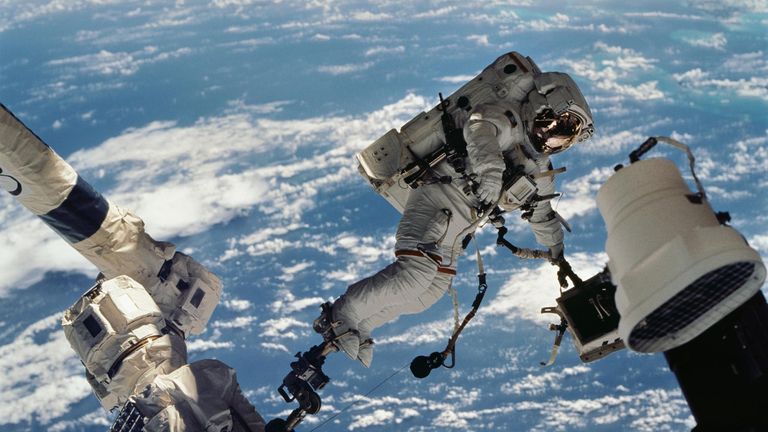Astronauts on the International Space Station were forced to take shelter last night after a Russian satellite broke into more than 100 pieces.
The nine astronauts living on the space station were told to shelter in their respective spacecraft, according to NASA, after the debris was spotted.
NASA astronauts Butch Wilmore and Sunni Williams boarded their Starliner spacecraft, the Boeing-built capsule that has been docked since June 6 in its first crewed test mission on the station.
Read more: Why two NASA astronauts are stuck in space
Three of the other US astronauts and a Russian cosmonaut went into SpaceX’s Crew Dragon capsule that flew them to the station in March.
The sixth US astronaut joined the two remaining cosmonauts in their Russian Soyuz capsule that ferried them there in September last year.
The astronauts emerged from their spacecraft roughly an hour later and resumed their normal work on the station, NASA said.
Russian missile theory
There were no immediate details on what caused the break-up of the Russian Earth observation satellite, which was declared dead in 2022.
Experts thought it was unlikely Russia shot it down with a ground-based anti-satellite missile.
“I find it hard to believe they would use such a big satellite as an ASAT target,” said Harvard astronomer Jonathan McDowell. “But, with the Russians these days, who knows?”
Russia sparked strong criticism in 2021 when it struck one of its defunct satellites in orbit with a missile launched from its Plesetsk rocket site.
The blast, testing a weapon system ahead of Russia’s 2022 invasion of Ukraine, created thousands of pieces of orbital debris.
Mr McDowell and other analysts speculated the break-up could have been caused by a problem with the satellite, such as leftover fuel on board causing an explosion.
US Space Command, tracking the debris swarm, said there was no immediate threat to other satellites.

